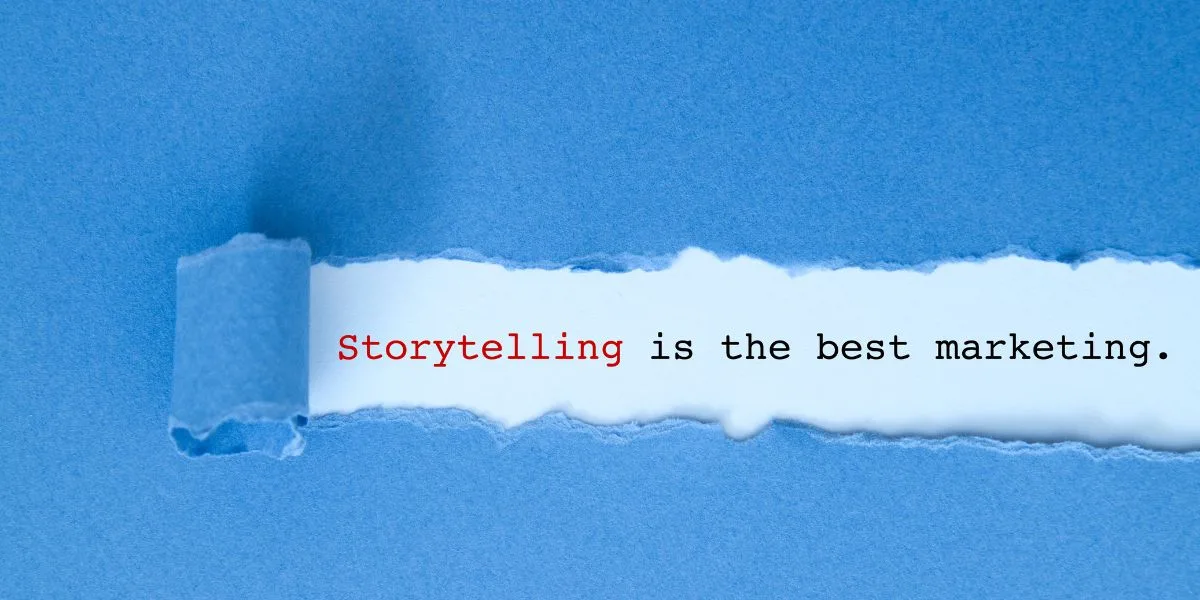Listen to this Article
For decades, cold calling was the backbone of prospecting in the financial services industry. Advisors were trained to pick up the phone, dial through lists of names, and deliver their best pitch to strangers. If you were lucky, one out of a hundred calls might result in an appointment. It was an exhausting ritual but widely accepted as the price of building a book of business.
But times have changed. Today, cold call marketing is no longer effective—or even permissible in some firms. Bank of America’s Merrill Lynch officially announced in 2021 that cold calling would be eliminated from their training programs. Instead, new advisors are trained to focus on seminars, educational workshops, digital campaigns, and relationship-based marketing strategies. Merrill isn’t alone. Across the industry, firms have recognized that the old playbook doesn’t resonate with today’s consumers.
The shift isn’t just about compliance or convenience. It reflects deeper changes in how people want to engage with financial professionals, how they seek information, and how they make decisions. In this blog, we’ll explore why advisors are abandoning cold calls, what has replaced them, and how event marketing and modern marketing strategies are driving stronger results.
The Rise and Fall of Cold Calling
In the mid-20th century, cold calling was considered the ultimate financial advisor marketing tool. Firms like Smith Barney and Merrill Lynch built empires on the backs of young brokers armed with phone books, scripted pitches, and relentless persistence. The logic was simple: the more calls you made, the more prospects you reached, and the more chances you had to book an appointment.
Cold calling did work—for a while. Baby Boomers, then in their peak earning years, were accustomed to phone conversations, often answered calls at home, and were more open to hearing a financial pitch. Advisors who stuck with it long enough could build sustainable books of business.
But cracks in the model began to show:
- Caller ID and technology made it easier for people to screen or block unwanted calls.
- National Do Not Call registries added legal hurdles.
- Consumer attitudes shifted, with many people finding unsolicited calls intrusive or untrustworthy.
- Generational change introduced audiences who preferred researching online and connecting through digital channels.
By the early 2000s, cold call marketing had become a numbers game with diminishing returns. Advisors found themselves spending hours dialing with fewer and fewer results.

Why Cold Calling Doesn’t Work Anymore
Today’s audiences are vastly different from those of 30 years ago. Consumers are skeptical of pushy sales tactics, have unlimited access to financial information online, and want advisors who educate, not just sell. Let’s break down why cold calling is obsolete:
1. Consumer Behavior Has Evolved
Millennials and Gen Xers, now prime financial planning prospects, grew up in a digital-first world. They expect personalized outreach, transparency, and value before engaging with a professional. An anonymous cold call feels out of touch in a world where information is readily available online.
2. Regulatory Environment Is Tighter
With FINRA, SEC, and Do Not Call rules, cold calling presents compliance risks. Firms like Merrill Lynch realized that training new advisors to cold call not only set them up for failure but also for potential liability.
3. Brand Reputation Matters More
One unpleasant cold call can damage trust in a firm’s brand. Today’s clients talk, leave reviews, and share experiences online. A single negative interaction can ripple far beyond one phone line.
4. Better Alternatives Exist
From seminars to webinars to targeted event marketing campaigns, financial advisors now have scalable, effective ways to attract prospects who actually want to hear from them.
The result? Cold calling has largely been relegated to history, replaced by modern financial advisor marketing strategies that prioritize education and engagement.
The Shift Toward Seminars and Educational Marketing
If cold calling was about interruption, seminars are about invitation. Instead of disrupting people’s evenings with an unsolicited pitch, advisors now invite prospects to attend financial seminars, retirement workshops, or webinars where they can learn about important financial topics in a relaxed, educational environment.
This shift speaks to what modern clients want:
- Education first. People want to make informed decisions, not be pressured.
- Trust building. Meeting an advisor face-to-face or in a workshop fosters credibility faster than a phone call.
- Community learning. Seminars create a shared experience where attendees feel comfortable asking questions and engaging with others.
- Choice. Prospects feel in control when they choose to attend an event, rather than being cold-called.

Why Seminars Work
Seminars and workshops are particularly effective because they combine content, connection, and context:
- Content: Advisors can address timely topics like retirement income, Social Security optimization, or tax-efficient investing.
- Connection: Prospects meet the advisor in person, gauge their expertise, and assess trustworthiness.
- Context: An in-person or virtual setting allows for two-way conversation, unlike the one-sided nature of a cold call.
This approach aligns with broader event marketing strategies seen across industries: businesses no longer push products but instead educate, inform, and guide prospects through value-driven experiences.
Metrics That Prove the Shift Works
The effectiveness of seminar marketing isn’t theoretical; it’s measurable:
- Over 6.4 million appointments have been generated for financial advisors working with LeadingResponse
- We’ve managed over 1 million events nationwide
- Our team connects and engages with over 1.9 mllion consumers annually
- We created over 812k opportunities for financial advisors in 2024 alone
These numbers illustrate why firms are shifting resources away from cold call marketing toward more strategic, data-driven approaches.
The Role of Digital and Hybrid Events
While in-person seminars remain highly effective, the pandemic accelerated the adoption of virtual events and webinars. Advisors who adapted quickly found that webinars:
- Expanded their geographic reach, allowing them to connect with prospects outside their immediate area.
- Reduced costs compared to physical venues and dinners.
- Provided on-demand content that prospects could revisit later.
Today, many advisors use a hybrid strategy, offering both live seminars and online workshops. This flexibility ensures they capture prospects with different preferences and comfort levels.
Digital channels also enable more precise marketing campaigns, with tools like:
- Retargeting ads aimed at prospects actively searching for financial guidance.
- Email campaigns based on demographic and behavioral data.
- Integration with CRMs to nurture prospects post-event.
In contrast to the cold calling era, where advisors relied on sheer volume, today’s strategies emphasize quality over quantity.
Building a Smarter Marketing Strategy
Modern financial advisor marketing doesn’t rely on a single tactic. Instead, it’s about integrating tools into a cohesive marketing strategy designed to attract and nurture high-quality prospects.
A well-structured event marketing strategy includes:
- Targeting the right audience. Not everyone is a good fit. Using data-driven marketing lists ensures that invitations reach those most likely to engage.
- Crafting compelling content. Seminar topics must be relevant and timely, answering the questions that keep prospects up at night.
- Following up effectively. The seminar is only the beginning; thoughtful follow-up via phone, email, or one-on-one appointments converts attendees into clients.
- Measuring results. Tracking attendance, conversions, and ROI helps advisors refine future campaigns.
This integrated approach delivers far more predictable, scalable results than the scattershot method of cold calling.
Unlock the Secrets to Seminar Success
Want to fill your events with qualified prospects and turn them into loyal clients? Our free white paper reveals proven strategies, insider tips, and actionable insights to maximize attendance, engagement, and conversions. Don’t leave your seminar success to chance.
The Future of Financial Advisor Marketing
Looking ahead, it’s clear that cold calling has no place in modern financial advisor marketing. Instead, the future belongs to strategies that prioritize personalization, education, and engagement.
Advisors who succeed will:
- Embrace data-driven marketing campaigns that target the right people.
- Use seminars, workshops, and webinars as primary prospecting tools.
- Blend offline and online strategies to maximize reach and efficiency.
- Invest in building trust and relationships rather than chasing transactions.
For clients, this evolution is a win. Instead of fielding disruptive calls, they get access to valuable education and the opportunity to choose advisors who fit their needs. For advisors, it means higher conversion rates, stronger relationships, and a more fulfilling career.
Final Thoughts
The era of endless cold calls is over. The modern advisor doesn’t need to burn through phone lists, face constant rejection, or rely on outdated tactics. Instead, they can embrace seminars, educational workshops, and integrated event marketing strategies that align with what clients truly want.
As Merrill Lynch’s 2021 decision to scrap cold calling demonstrated, the industry has officially moved on. The question is no longer whether cold calling works—it doesn’t—but whether advisors are ready to adopt the tools and strategies that will define the next generation of success.
For advisors seeking growth, the answer is clear: ditch the cold calls, embrace the seminars, and build a marketing strategy rooted in education, engagement, and trust.
Ditch the Cold Calls: Turn Prospects into Clients with Seminars
Cold calling is out, meaningful connections are in. Educational seminars create an environment where prospects are engaged, informed, and ready to act. Discover how the right event strategy can fill your pipeline with high-quality leads.










